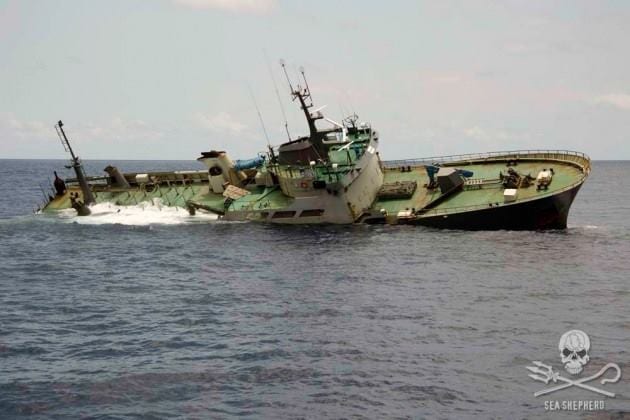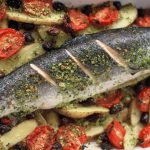
A WEALTHY family of fishing barons has been detained for poaching a protected species.
In total, six people are being held on charges of illegally fishing Patagonian toothfish in Antarctic waters.
Five of them are members of the Vidal family who run Ribeiro Vidal Armadores and have a previous record of illegal fishing.
The arrests took place following an Interpol and Spanish police raid on Vidal-owned property in Galicia, where the family owns a factory producing Omega-3 products.
It comes after the final ship in the suspected poaching fleet Bandidos 6 was successfully sunk by environmental group Sea Shepherd.
The fish, which is rich in Omega-3 fatty acids, is known as ‘white gold’ in the industry as it can sell for as much as €130 a kilo. A large catch can be worth as much as €50 million.
“This is the first time that the Spanish police and Interpol have joined forces against illegal fishing in a joint action,” said Lasse Gustavsson, executive director of the NGO Oceana in Europe. “This announcement is a watershed in the fight to eradicate illegal, unreported and unregulated fishing of our oceans.”
The high court is now involved and criminal proceedings are said to be underway.
A police spokesman said that at his time of arrest Antonio Vidal did not deny fishing in the Antarctic.
Vidal has already been convicted in the USA for attempting to smuggle toothfish. His vessels have been blacklisted but the ships have been renamed and reflagged in countries such as Equatorial Guinea, Mauritania and Panama to evade the authorities.
In 2015 Spain’s agriculture ministry imposed fines of over €17 million on three of Vidal’s vessels.












Toothfish (‘Chilean sea bass’, ‘black hake’) take more than 7 years to reach reproductive age, live at depths as 600 – 2,500 meters and are fished via habitat destroying bottom trawling. Because of very slow recovery rates due to late reproductive age, irresponsible fishing techniques and over-fishing, the Patagonian toothfish is on the endangered list (red-listed). The name ‘Chilean sea bass’ is a marketing ploy intended to increase sales in restaurants and fish markets.
Sable fish, ie, black cod, from Alaska are not endangered and can be readily substituted in recipes. Moreover, because of the toothfish’s long life, they collect high concentrations of mercury, which is especially detrimental to pregnant women. The toothfish’s long life also accounts for the higher commercial value of the younger, smaller fish, not yet of reproductive age, but lower in mercury contamination, which puts further into jeopardy species recovery. The Marine Steward Council certifies one fishery Patagonian South Georgia fishery and requires a certificate showing source and chain of custody.